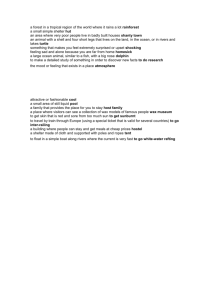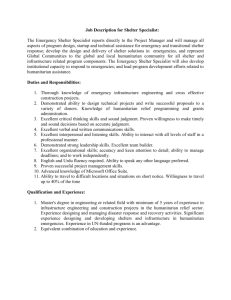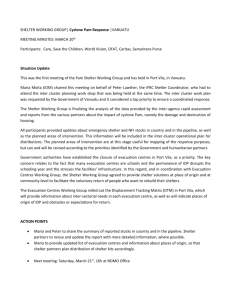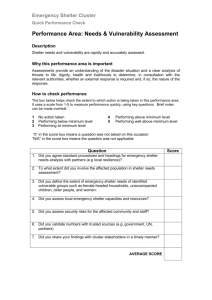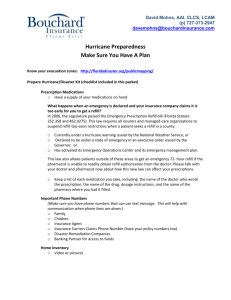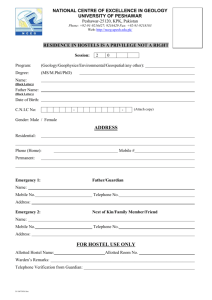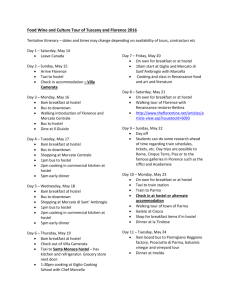Emergency Plans - City of Toronto
advertisement
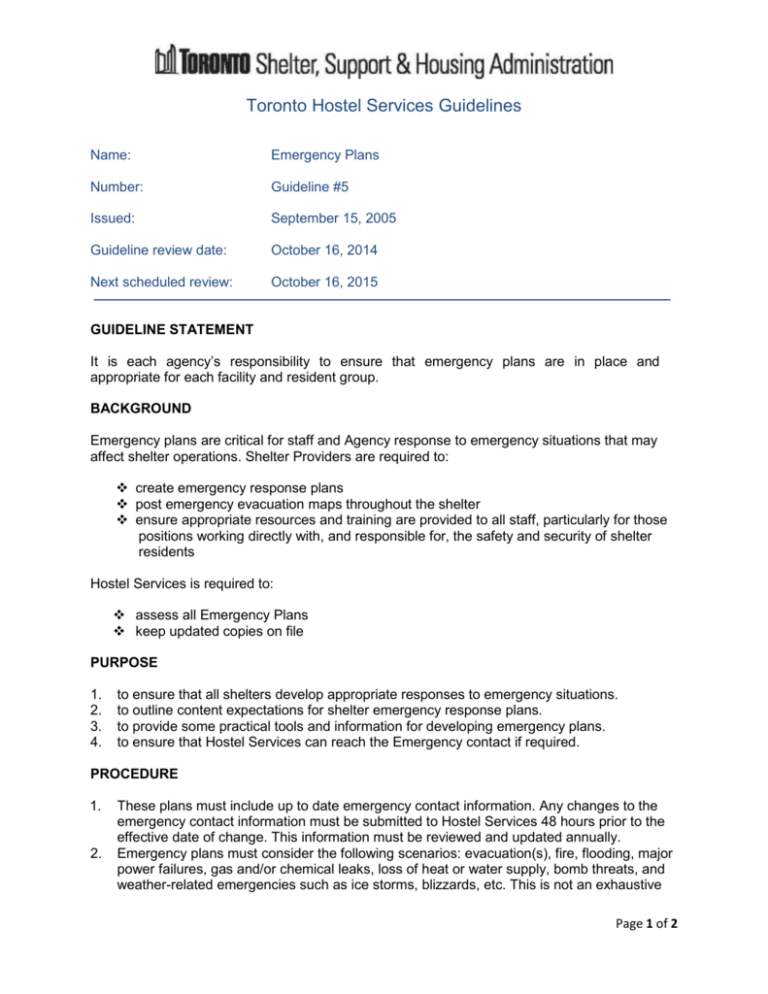
Toronto Hostel Services Guidelines Name: Emergency Plans Number: Guideline #5 Issued: September 15, 2005 Guideline review date: October 16, 2014 Next scheduled review: October 16, 2015 GUIDELINE STATEMENT It is each agency’s responsibility to ensure that emergency plans are in place and appropriate for each facility and resident group. BACKGROUND Emergency plans are critical for staff and Agency response to emergency situations that may affect shelter operations. Shelter Providers are required to: create emergency response plans post emergency evacuation maps throughout the shelter ensure appropriate resources and training are provided to all staff, particularly for those positions working directly with, and responsible for, the safety and security of shelter residents Hostel Services is required to: assess all Emergency Plans keep updated copies on file PURPOSE 1. 2. 3. 4. to ensure that all shelters develop appropriate responses to emergency situations. to outline content expectations for shelter emergency response plans. to provide some practical tools and information for developing emergency plans. to ensure that Hostel Services can reach the Emergency contact if required. PROCEDURE 1. 2. These plans must include up to date emergency contact information. Any changes to the emergency contact information must be submitted to Hostel Services 48 hours prior to the effective date of change. This information must be reviewed and updated annually. Emergency plans must consider the following scenarios: evacuation(s), fire, flooding, major power failures, gas and/or chemical leaks, loss of heat or water supply, bomb threats, and weather-related emergencies such as ice storms, blizzards, etc. This is not an exhaustive Page 1 of 2 3. 4. 5. list; each agency is expected to conduct its own risk management assessment of its operations to determine if other emergency situations should be included. Each agency should assess the potential risks and establish plans for City-wide, local and site-specific emergencies. Plans must include contingencies for shelter, food and water provision whether on-site or off-site. The evacuation plans should identify the alternate site. All shelter staff and volunteers must be trained regularly on the Emergency Plan, including practice drills and exercises to ensure that staff are fully prepared in the event of an emergency. Training records must be maintained. Each agency must review and evaluate their emergency plan and practice drills annually and keep a written record for submission to Hostel Services as required. Plans should be based on the assumption that assistance from the City may not be accessible for the first 72 hours after the initiation of a large-scale emergency. RESOURCES City of Toronto Office of Emergency Management http://www1.toronto.ca/wps/portal/contentonly?vgnextoid=4b3307ceb6f8e310VgnVCM10000071d60f 89RCRD&vgnextfmt=default Emergency Management Ontario http://www.emergencymanagementontario.ca/english/home.html Public Safety and Emergency Preparedness Canada www.getprepared.gc.ca Page 2 of 2
